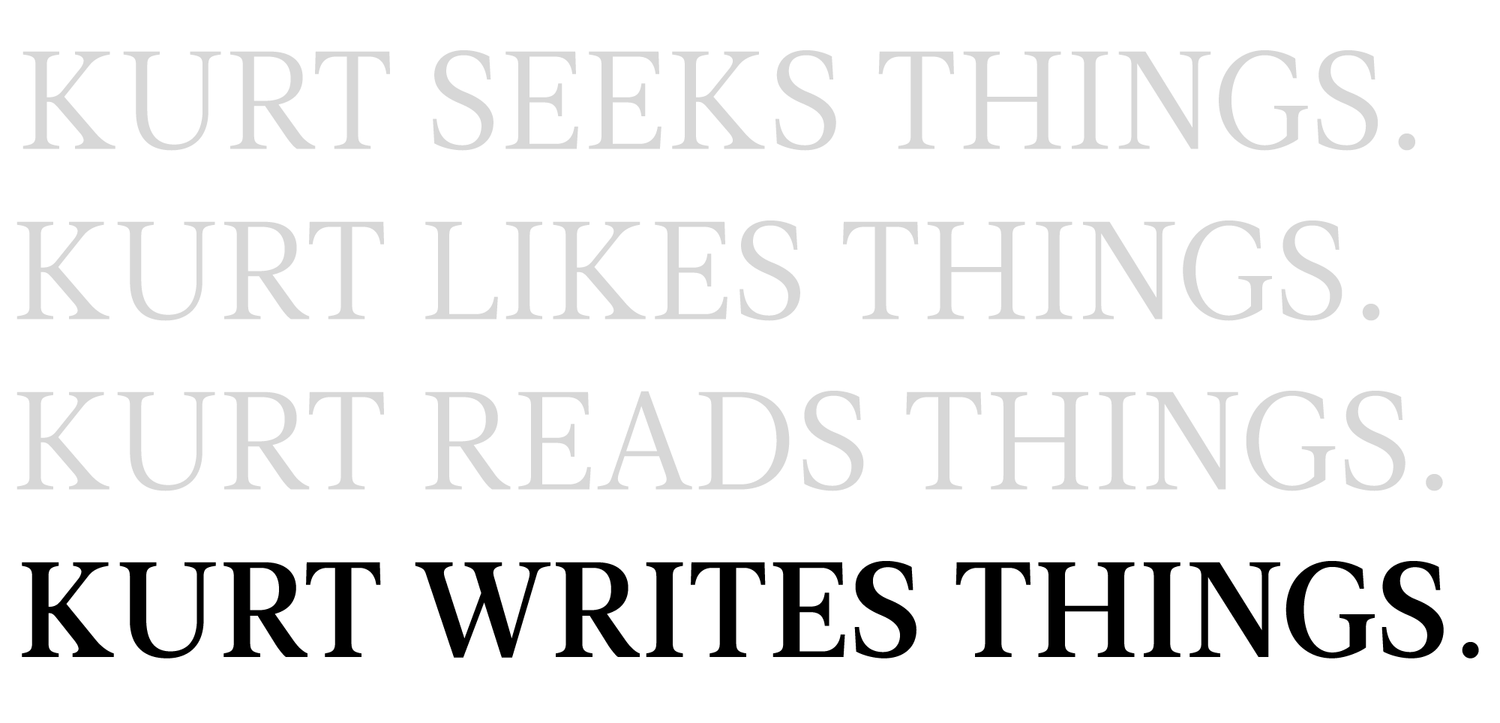Radiohead - 'The King Of Limbs' Album Review
/On Valentine’s Day this year, one of the most important and inventive rock bands of the last 15 years decided to announce the existence of their eighth studio album. And that it will be released in 5 days time. Then, just to wreck havoc with fans and the music press, they released it a day earlier than expected. Go figure.
Album cover of The King Of Limbs
We should’ve seen it coming.
In Rainbows' ingenious marketing scheme in 2007 essentially allowed fans to ‘donate’ to the band (if they chose to pay) and the album was released on the band’s website, thus centralising the distribution (if only at first).
The King Of Limbs’ release format continues the wriggling unpredictability of a band which chooses to do what it wants, and oftentimes is one of the first to do it at that level of fame.
TKOL is their shortest album to date, briskly ebbing and flowing through its 37 minutes like a dream. Continuing their experimental expedition into electronic territory that started with 2000’s ground-breaking Kid A, the album prickles and hums with little bleeps and bloops, ethereal background vocals, imposing, fuzzy bass and clockwork, yet uncommonly-timed drumming.
Anyone holding out for a return to the alternative guitar-rock anthems that defined Radiohead in the 90’s will probably be disappointed. Guitars are very downplayed, and the sonic influences seem to be more from underground electronica artists than anything else. Despite my personal preference for their earlier works like The Bends and OK Computer, it is still exciting to see Radiohead wanting to pursue this adventurous route.
It'll be interesting to see how these new tracks will be pulled off live
Don't Blow Your Mind With Whys
The album starts off with ‘Bloom’, a real ‘grower’ in the true sense of the term – an atmospheric, woozy, ambient jumble of looping ideas: an intentionally lop-sided, clattering rhythm, a repeated piano pattern, an evocative, warbling bass lick, and all the while Thom’s vocals float above it all like a swirling cloud. Incredibly weird, but it definitely lures one in with its cryptic lyrics, such as "Open your mouth wide/The universal sigh/And while the ocean blooms/It’s what keeps me alive".
‘Morning Mr Magpie’ is a taut, claustrophobic and tense track that chugs along intently with a sort of African groove. Sinister and almost funky, the guitars link up how they do in ‘Weird Fishes/Arpeggi’ (from their previous album), but in a very different mood. A panic seems to be setting in with the beat, and it leaves the listener feeling very unsettled, especially when an accusatory Thom wails "You’ve got some nerve coming here/You stole it all/Give it back'.
Continuing from where ‘Magpie’ left off, ‘Little By Little’ tumbles out the speakers with a toy box of rising and falling basslines, jazzy drumming and surprisingly tender vocals, with rare seductive lyrics for a Radiohead song ("I’m such a tease and you’re such a flirt"). The confusion climaxes mid-album with ‘Feral’ – a near-totally instrumental, abstract, cacophonous shuffle, which combines many of the elements of the previous three tracks. It has a very difficult, throbbing melody to follow, and a song for which first-time Radiohead listeners (and many others too) will be left wondering ‘Huh?’
This is definitely an album of two halves, as the second one is profoundly different in tone and in mood to the first – more nature than machine, more beautiful and serene.
The first single ‘Lotus Flower’ is one of the album’s standouts, not just for its wacky black-and-white music video of Thom’s jerky dance moves, but for harnessing the best elements of the album’s sonic architecture into a cohesive whole.
The bass silkily propels proceedings forward with an addictive backbeat, one more suited to a late night post-clubbing comedown, and the ethereal, falsetto vocals unfurl outwards just like the lotus flower. Added to this awesome groove are the occasional handclaps and spacey effects: a sexy aural cocktail indeed.
Stills taken from Radiohead's music video for 'Lotus Flower'
The Universal Sigh
TKOL has some underlying Buddhist themes of the cycle of life, death and rebirth, along with many metaphors involving nature (jellyfish, flowers, magpies, lakes, dragonflies, etc).
This is a very interesting progression from the overarching themes of Radiohead’s work, which have mostly been about the conflict between man and machine, humanity and technology. Here it seems that the natural world is the focal motif.
‘Codex’ is an excellent example of the thematic change; a piano-based ballad in the vein of ‘Motion Picture Soundtrack’ or ‘Nude’.
The murky piano sounds as if it’s being recorded underwater, like the chords are forming part of a requiem. A harmonic string orchestra and horn section enter about midway through, adding to the bliss, and once again, Thom’s vocals are sweet and melodic. The lyrics echo the first track’s imagery of jumping into a clear lake, with only nature around him.
From A Long And Vivid Dream
The sounds of twittering birds and possibly a day in the countryside segues ‘Codex’ with ‘Give Up The Ghost’: TKOL’s most emotionally-vulnerable, organic track.
Framed by a lone acoustic guitar, a soft, spiraling lead guitar by Jonny, and a chorus of background vocals (alternating their chants between "don’t haunt me" and "don’t hurt me"), this song has an immersive, rustic feel to it; territory that Radiohead have never really ventured into before. We are now a long way away from the album’s opening, jittery tracks.
This chapter in Radiohead history closes with ‘Separator’ – my personal favourite from TKOL, and one where the band dynamic is at its strongest, most vibrant self. A crisp drumbeat by Paul Selway, a lush introduction of delicate, shimmering guitars from halfway in, and a smooth bass throughout make up this intriguing number.
I've heard some conspiracy theorists say that the final track's name alludes to a possible second set of songs to be released in the near future. The offending lyric ("If you think that this is over/Then you’re wrong"), the conjunctional nature of its title, and the album’s sudden ending on an uplifting note lend hefty weight to that notion. But as it stands, the dreamy ‘Separator’ bookends their current progression from In Rainbows until now with a heavenly background chorus; the final notes sprawling out of the dense thicket of sound.
Stylistically, this album feels like a long lost twin of Amnesiac (2001's misunderstood electronic smorgasbord), just like In Rainbows seemed spiritually connected with OK Computer (both combining experimentalism and crowd-pleasing ideals).
It's probably not going to revolutionize the industry as previous outputs of theirs have completely, but this soulful snapshot should give the band some vigour as they stare down almost 30 years of playing together, and show their ability to morph into whatever they feel like and still fascinate & confound listeners and critics. Radiohead have gone for the bold and avant-garde, but is it enough for the gold? A few more listens should do it.
Tracklisting:
Bloom
Morning Mr Magpie
Little By Little
Feral
Lotus Flower
Codex
Give Up The Ghost
Separator
Release dates: 18 February 2011 (digital), 28 March 2011 (physical)





